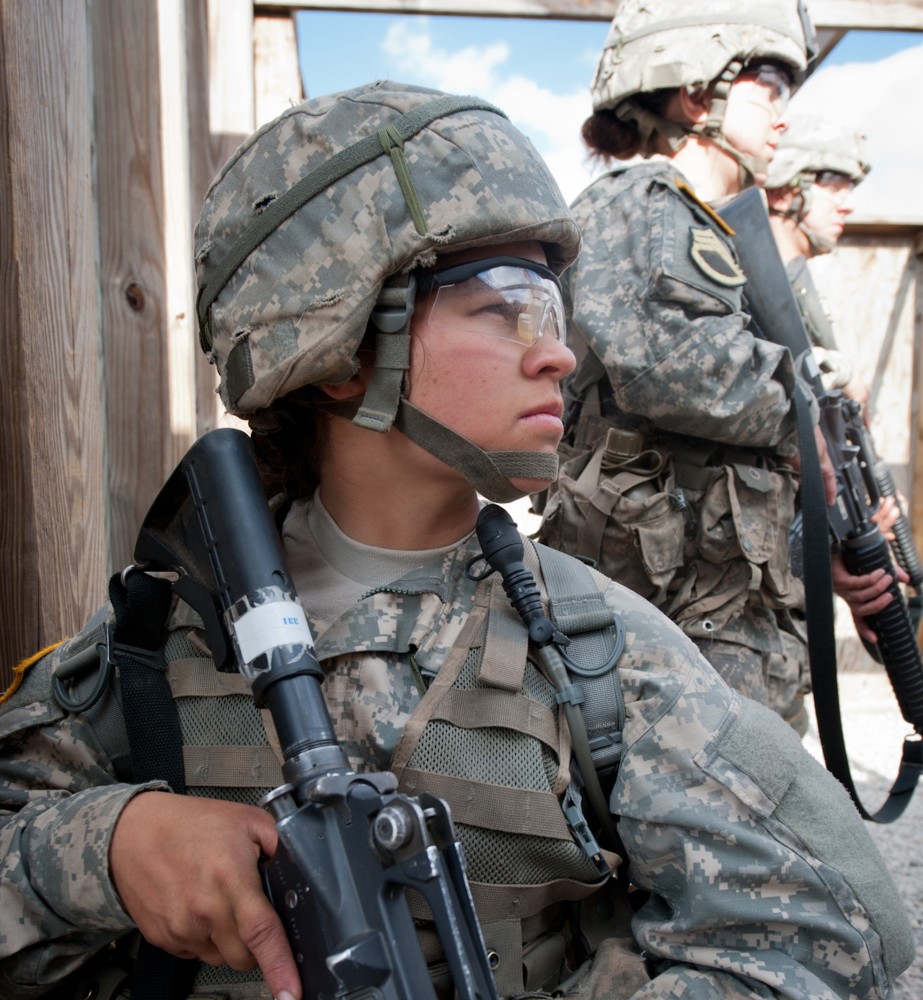EDITORIAL
The Fayetteville Observer, N.C.
WWR Article Summary (tl;dr) Six women at Fort Bragg have earned the Army’s prestigious Expert Infantryman Badge — the first women in the Army to achieve that status.
The Fayetteville Observer, N.C.
It was only a few years ago that there was still ferocious — and often sarcastic — debate about the presence of female soldiers in the 82nd Airborne Division. Women, they said, have no place jumping out of airplanes, or performing any other military task formerly done by male soldiers only.
Not surprisingly, most of the protests came from veterans — those who had served well and honorably in a different time, when most soldiers were men.
Then the debate shifted. The furor over women in the airborne largely disappeared, but was replaced by scorn for the Army’s plan to allow women in combat positions. Never mind that women had been part of routine patrols in hostile territory in Iraq and Afghanistan since the early days of our wars in those countries. Making it official and allowing women just struck a raw nerve — again, mostly with veterans whose service had been completed years ago.
Then, last year, women passed the Army’s brutal Ranger qualification course, shattering the widely held belief that they women weren’t up to the challenge. Some of them are, it turns out.
And this week, we learned that six women at Fort Bragg have earned the Army’s prestigious Expert Infantryman Badge — the first women in the Army to achieve that status. It’s not an easy task: Of the 1,000 soldiers who took the qualifying test at Fort Bragg last November, only 287 passed. To earn the badge, soldiers must successfully complete 30 tasks that show they have mastered basic infantry skills. The testing includes weapons proficiency and medical and patrol skills.
As it was with the Ranger course, these six soldiers took the same tests that male soldiers took. And they passed.
It’s becoming the new normal. Before long, the “wow” factor will be history. At Fort Bragg, they’re already treating it that way. None of the six women who earned the Expert Infantryman Badge would agree to an interview, or even to be named.
Division leaders declined interview requests as well. And on Wednesday, the Army announced that it will integrate female officers into more infantry and armor brigades. That’s already the case at Fort Bragg and Fort Hood in Texas. Now, female officers will join combat units at Fort Carson, Colorado, Fort Campbell, Kentucky, and Fort Bliss, Texas.
But combat seasoned soldiers say they’re not at all surprised by the female soldiers’ latest achievement. “No, there was no doubt,” said Command Sgt. Maj. Martin Celestine, a leader at the Army’s Infantry School at Fort Benning, Georgia. “I’ve deployed on multiple times and I’ve been side-by-side with women. When we talk about technical competency, it’s not about ‘man or woman.’ This is a soldier skill. We’re all one team here.”
It doesn’t surprise Tammy Duckworth, either. The Democratic U.S. senator from Illinois was one of the first female Black Hawk helicopter pilots to fly in combat. She lost both her legs and partial use of one arm in 2004 in Iraq when her helicopter was hit by a rocket-propelled grenade. “These six incredible women prove exactly why the Department of Defense was right to allow women to serve in all military roles, an action that was long overdue,” she said. “Remember, women have served attached to infantry units for decades without being formally assigned to the unit — so even when they met the requirements, they technically could not earn the EIB until now.”
Whether they like it or not, though, these six women are role models who will inspire upcoming generations to join, serve and fight for their country.
They’ve taken down one more wall that long stood in front of female soldiers and once again put our armed services in the forefront of efforts to extend equal opportunity — for equal pay and equal responsibility — to everyone.














































































































































































































































































































































































